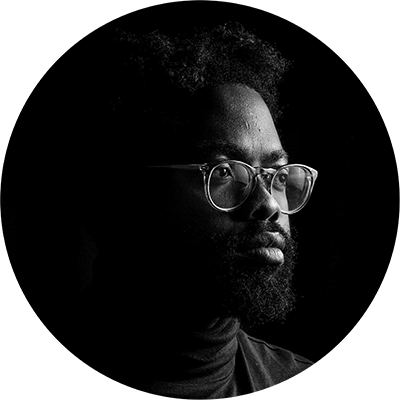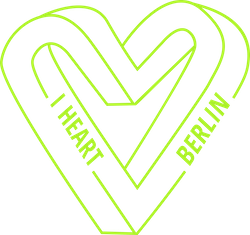Before I proceed, you should know that I am Black and a first-generation immigrant. Therefore, it is not completely lost on me that my feelings on this subject of identity will be met with resistance, disagreeing opinions and questions, all of which may emerge because “Today, I feel German” will be considered by many an atypical declaration. It is not every day a man who was born and raised at the heels of Mount Fako, Cameroon audaciously declares himself part of a giant colonialist nation, Germany, in such a public format. These are not feelings I am allowed to claim ownership of, because possessing such opinions can easily be mistaken for the denouncement of one’s own traditions and heritage in the quest to insert one’s self onto a culture that has no place for one’s sensibilities and difference.
I am a first-generation immigrant from Cameroon who moved to Germany some twelve years ago: learned the language, went to high-school then university and is considered integrated, assimilated, but I cannot publish a poetry book without state permission. On one hand, I am expected to adopt, to become, to move away fully from who I was, to be acknowledged and awarded social capital in the face of the nation but still, to many, I must justify my voice, my rights, my place in the nation because I am different by design. I am something difficult to place because the image imprinted in our collective westernized memories are those that suggest I am: a negro of slave descendants, from a “sh*t hole” country. I am something difficult to understand because my very claim to legitimacy is not only tied to the question of cultural difference; it is one that is physical, racial and gendered.
So, in the name of the love, family, and campfire we share; I would like to say this out loud, one more time—Today, I Feel German!
My words are not of menacing character. They were not uttered in denial of my heritage, nor were they said to cause you to question your God-given nationalist identity. They were uttered to serve a specific purpose. The purpose of liberation, to those whose existence ignites heated national and international conversations on their legitimacy to share in the nation’s bounty. It was said to encourage myself and many others who share in the same experiences of being black and a minority in a sea of vastly homogenized people. It is a reminder of sorts, that home is not one place but the community you build and keep and cultivate over time. Today, I feel German, also means that I am aware of all the times I walk through the streets of Berlin feeling like an imposter because I have been told I do not belong. Because to us, assimilation means to put your head down, pound the pavement, work, be seen and not be heard, be a shadow amongst men living in plain sight.
I am writing this because today, I refuse to answer the questions I get asked every day like: where are you from and why are you here; questions I get asked almost every other day, which to me is a daily reminder that I do not belong, that I am not one of you, that in some way, I am different and this difference precedes my very essence as a human being. I live in an adjective-filled world, one where black is placed before everything I am and suddenly what everyone wants to talk about is the adjective, black, immigrant, male, and not about the person that lives within.
These questions have led to the birth of even more questions that cause me to question my own identity, like; who am I, here, now in this place, how much freedom of self and place do I hold claim of, is an assimilated man still a true black man, or am I too far removed from who I used to be?
I have no answers to these questions, but I know what I feel inside.
A casual work day at the Spacebase office in Berlin Kreuzberg
Today I am German, I am like you, not a minority, not black, not an immigrant just a person who feels and thinks and does and here is why:
Waking up every day to that truth that, I am part of a very unique work-family where women run the world, lead operations, coms, and marketing teams, where opportunity is given not based on gender or hue but on technical acumen, cross-functional discipline, and perspective. That is; we can bring yourself to the table because there is a culture in place designed to hear, understand and embrace us, as we work towards the same goal.
When I squeeze my way through Berlin’s transit every other morning at seven am. to get to the Humboldt campus on time for class, I feel one with the nation because I have been given the chance to study at one of Germany’s most sought-after elite institutions walking in the path, following in the footsteps of W.E.B Dubois, Angela Davis and many more who have walked through these very Humboldtian hallways in full-force tearing down glass ceilings as they propel themselves to greatness. I see in the fragments of what is left of them in how they are celebrated by their accomplishments and their contributions to the arts and education, a sense of belonging. Therefore, like them, I too belong.
Humboldt University, Berlin
I feel German, when my niece who is only five-years-old, tells me she will grow to become a police officer. I feel a sense of pride and hope in that, she may well be of the generation that finally gets it right. One that finally learns that we are all humans, therefore, we ought to only be judged not by what we look like but what we bring to the table for the betterment of the community. A community not born of citizenship alone but one that is born by personal, individual feelings of belonging, a belonging which yields the intellectual development of shared narratives from which shared group identities emerge.
When I meet my friends for an evening beer to discuss future endeavors and hopes and dreams, dreams only made possible by hard-ward, dedication and the vastness of opportunities presented by this great nation Germany, I realize how fortunate I am to have been given such a unique opportunity to thrive and flourish.
The point is, I feel German because I love Germany. The conversation starts there. The conversation begins with a space for peace. The kind of peace that Toni Morrison believes is “the dance of an open mind when it engages another equally open one”. The peace that lets us cherish in the truth that “we are each other’s harvest; we are each other’s business; we are each other’s magnitude and bond”– Gwendolyn Brooks. “What a world this will be when human possibilities are freed when we discover each other when the stranger is no longer the potential criminal and the certain inferior”– W.E.B. Dubois. Today, I feel German just means you are welcome to invite me to break “Wurst” and toss “Bierkrugs” with you to celebrate our shared similarities and differences as we relish in each other’s company while championing one another towards a singular and collective greatness.
Text: Hn. Lyonga
* * *
 hn. lyonga is a Berlin-based Poet, Creative-writer and Activist. Currently, he is a Master’s student of American Studies at Humboldt-Universität Zu Berlin. He graduated with a Bachelor’s in American Culture and Sociology from the University of Kassel. He is a founding member of the Black Student Union at Humboldt and a member of the Kuratorium of BARAZANI.berlin – Forum Kolonialismus und Widerstand
hn. lyonga is a Berlin-based Poet, Creative-writer and Activist. Currently, he is a Master’s student of American Studies at Humboldt-Universität Zu Berlin. He graduated with a Bachelor’s in American Culture and Sociology from the University of Kassel. He is a founding member of the Black Student Union at Humboldt and a member of the Kuratorium of BARAZANI.berlin – Forum Kolonialismus und Widerstand



